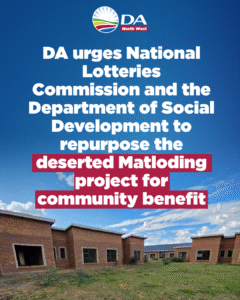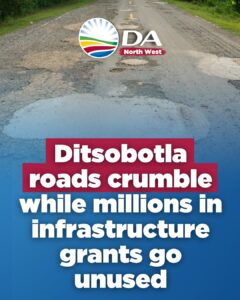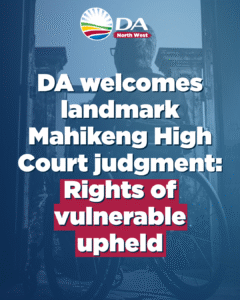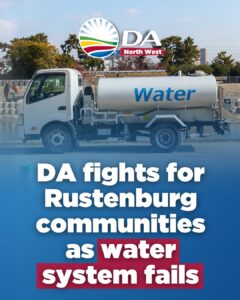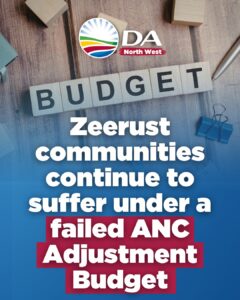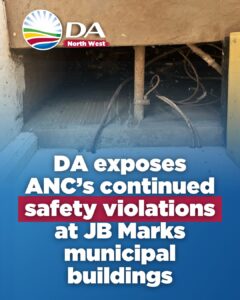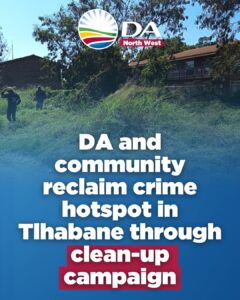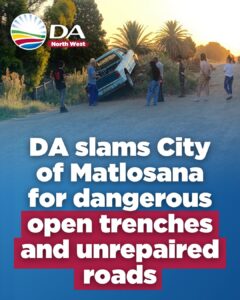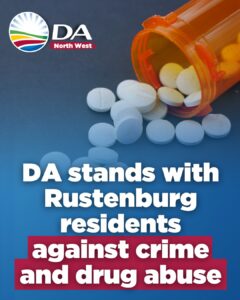Note to Editors: The following is an extract of a speech delivered by the DA North West Chief Whip, Freddy Sonakile MPL, during a debate on failed interventions into municipalities held yesterday at the North West Provincial Legislature in Mafikeng.
Since the invocation of Section 139(1)(b) in 2018 into 15 North West municipalities, we have seen administrators come and go. We have also seen the return of disgraced former chief directors, mayors and municipal managers employed from a questionable database that is nothing other than an “Unemployed Cadre” Database, whereby the only qualification needed is seemingly being an unemployed ANC comrade.
To this end, we asked Premier Mokgoro to take us through the process of appointing administrators during an oral question and answer session last year.
The Premier gave an in-depth explanation of the shortlisting, CV and qualification verification, security screening, vetting and selection process, but by the looks of things, these vacancies are reserved for unemployed public servants, as was the case with Naledi.
When the administration period came to an end in December 2019, the municipality requested the Department of Cooperative Governance, Human Settlements and Traditional Affairs (COGHSTA) to second an acting municipal manager while Human Resource processes to appoint one were ongoing. The former administrator was appointed from the “Unemployed Cadre” Database.
In many instances, such as Tswaing, the administrator was from a different faction than the mayor and municipal manager and more often than not, the accounting officers of municipalities refuse to cooperate with administrators for this exact reason.
Due to the involvement of factional politics when invoking these interventions, the administrators, as in the cases of Tlokwe and Ditsobotla, drain municipal funds by hiring the protection services of security companies at an astronomical cost, not to mention their large salaries and other perks!
Honourable Speaker, the failure of Section 139 interventions into municipalities is aptly encapsulated by well-known American economist, Milton Friedman. I quote:
“The government solution to a problem, is usually as bad as the problem.”
Since 2006 to date, there has been a total of 81 interventions into the 22 North West municipalities. Evidently, none of these interventions yielded any positive results.
In the 2015/16 financial year, only 6 municipalities received a disclaimed audit opinion. In 2017/18, 13 municipalities received disclaimers, 8 received qualified audit opinions with findings and 1 received an unqualified opinion with findings.
This was the year that Section 139(1)(b) was invoked. Now, almost two years later, let us assess the financial state of municipalities:
- Eskom debt stands at R1 billion;
- Unauthorised, irregular, fruitless and wasteful expenditure stands at R5.8 billion;
- Aggregate arrears on municipal services debt stands at a shocking R17 billion.
Despite the various interventions over the years, these figures continued to accumulate. This begs the question as to why the North West Provincial Government saw it fit to continue down this ineffective trajectory without considering the reasons for its failure.
It is concerning that no close out reports are ever handed over on these interventions, resulting in administrators often leaving without providing any substantial documentation to go by.
So, when we put the current state of North West into perspective, this is what we can conclude:
Our municipalities have been bankrupted by politically connected individuals with absolutely no consequences.
Yes, Speaker, not one is in jail or even close to facing prosecution.
Rather, these corrupt individuals have been appointed as administrators or other key managers in the next municipality in an attempt to smooth over their gross mismanagement of funds.
Despite the various interventions, poor audit outcomes, corruption and irregular expenditure continue to escalate.
This cycle has been continuing for the past 26 years. Staying this destructive course will have dire consequences for the economy and the communities entitled to basic services.
